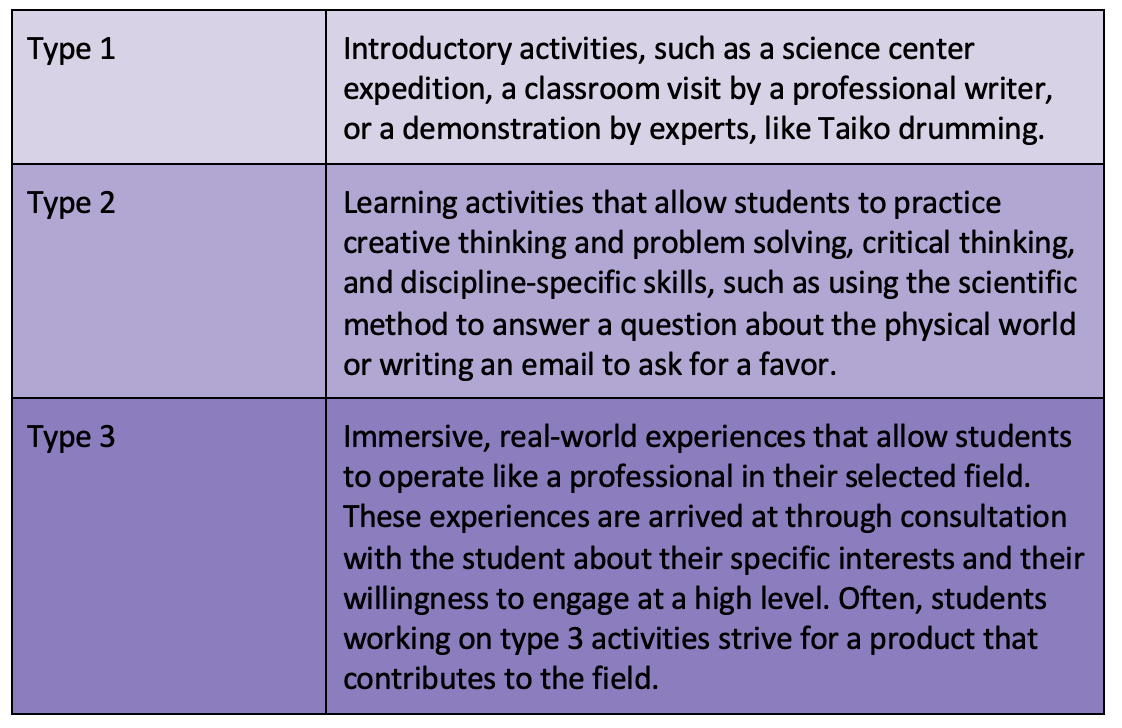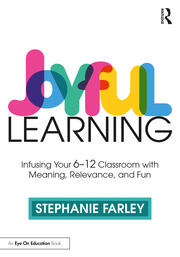What School of Rock Got Right about Education
What the movie gets right about education – and is still true today – is that one of the very best ways to motivate kids to learn is through the pursuit of their interests and development of their talents.
By Stephanie Farley
 The 2003 movie School of Rock is my Roman Empire in that I think about it a LOT. Not daily, but frequently enough that people with whom I’m acquainted think it’s my favorite movie.
The 2003 movie School of Rock is my Roman Empire in that I think about it a LOT. Not daily, but frequently enough that people with whom I’m acquainted think it’s my favorite movie.
For those of you unfamiliar with the movie, it’s the story of a down-on-his-luck musician, Dewey Finn, who takes a temporary job as a substitute teacher. Noticing the students’ classical music skills and seeking glory/revenge after being kicked out of his own band, Dewey embarks upon a project he calls “rock band” with his class of 5th graders (I’m guessing the kids’ grade level). The project involves a competition in a few months’ time.
When I saw School of Rock in 2003, I had been teaching for about 8 years at an independent school. While I chuckled at Dewey’s ridiculous incompetence, I also admired the way he threw out the rulebook to create a meaningful experience for his students.
Of course, at inception, the rock band competition Dewey insisted upon was a meaningful experience for Dewey himself, but, as things progressed, the competition became a relevant performance task for all the kids in Dewey’s class. (Here is a 7-minute School of Rock refresher.)
Each student had an authentic role to play in their rock band project, contributing their gifts, developing their talents, and pursuing areas of interest. Notably, the character of Summer, who loves to manage things, was offered the role of band manager, while another character, Billy, asks to make the band’s costumes and is encouraged to do so. And, of course, the students’ classical music skills are transformed into rock band skills over the course of the movie.
One of the best ways to motivate learners
What the movie gets right about education – and is still true today – is that one of the very best ways to motivate kids to learn is through the pursuit of their interests and development of their talents.
There’s an enormous body of research about gifted and talented students that repeatedly points to this notion. From this research, protocols have been developed, like Renzulli’s Enrichment Triad Model, that help educators figure out how to spark interests and develop talents.
Renzulli’s model doesn’t require a rock band competition, but it does urge teachers to provide a variety of authentic experiences so that students can determine for themselves how they might work productively in any arena. These experiences are separated into three categories, which I’ve outlined below.
 Renzulli’s method makes perfect sense: you introduce students to a topic of study with a fun introductory activity to pique their curiosity; you teach them the skills of that discipline through practical learning activities; then you allow students to use what you’ve taught them to pursue a project of their own devising and to create a meaningful product.
Renzulli’s method makes perfect sense: you introduce students to a topic of study with a fun introductory activity to pique their curiosity; you teach them the skills of that discipline through practical learning activities; then you allow students to use what you’ve taught them to pursue a project of their own devising and to create a meaningful product.
Here’s how the model might look in practice:
- You take students to see a dance performance at the local auditorium.
- You teach students movement principles and basic steps.
- Then you ask students if they’d like to create and put on a show themselves, which they can do collaboratively or individually.
And what’s so brilliant is that the method doesn’t just work for gifted kids; it works for all kids! With that in mind, we can turn back to School of Rock for guidance about the three qualities of authentic experiences.
Quality 1: Taking Kids Seriously as Practitioners
In the movie, Dewey approaches the students not as kids who don’t know as much as he does, but as musicians, designers, and business people who are capable of significant work. The kids aren’t “acting as” musicians; they are musicians. This distinction is transformational for everyone involved.
And this is true in school, too. When we assume that kids are “historians” or “mathematicians” and present problems in the same way that historians or mathematicians encounter them, we pique curiosity and enable new interests. In Renzulli’s model, beginning a unit through a practitioner’s lens is considered a type 1 activity.
Quality 2: Providing Real-Life Experiences That Make the Work Feel Urgent and Necessary
School of Rock’s real-life experience was preparation for the rock band competition. The kids in the movie were working toward the goal of putting on an awesome show. Along the way, they learned skills that would help them in their show-day performance, like writing music, singing, making costumes, staging lights, and moving equipment safely.
In our own classes, our learning activities guide students to develop and practice the skills they’ll need for their summative assessments. And when we make this practice feel necessary, because the stakes are real (i.e., a competition), then students benefit because it makes the work meaningful. These are type 2 activities in the Enrichment Triad model.
Quality 3: Failure is Probable but Excellence is Possible
There is no guarantee in the movie’s plot that the kids will succeed at their rock band project. Indeed, a source of tension and humor is that the kids are…well…kids! How can they possibly compete against adults with so much more experience and craftsmanship?
While Dewey doesn’t say outright that failure is probable, the audience certainly feels that. However, Dewey does repeatedly assure the students that excellence is possible. This notion motivates the class to keep going. In the competition, the kids (spoiler alert!) didn’t win, but they did their best, showed enormous growth, and thereby achieved.
Real-world experiences like competitions help students feel their effort will pay off in some form. It can be motivating to participate in spelling bees or design solutions to local climate issues. As teachers, we call these experiences “summative performance assessments,” and we understand that they can be powerful tools for learning. Renzulli’s model uses the term type 3 activities to encompass the ways in which students can contribute to the body of knowledge in a discipline through their original work and research.
When you need a bit of inspiration in your teaching life, I encourage you to watch some clips or even the entirety of School of Rock. Perhaps, like me, you’ll find yourself wondering how you can create a project similar to “rock band” in your own classroom for a little while!
(For the record, my favorite movie is Game Night.)
 Stephanie Farley has been an English teacher and independent school administrator in southern California for 27 years. Formerly Director of Teaching and Learning at a school for gifted, neurodiverse students, she is now working with grades 4-12 teachers and teaching ninth grade English.
Stephanie Farley has been an English teacher and independent school administrator in southern California for 27 years. Formerly Director of Teaching and Learning at a school for gifted, neurodiverse students, she is now working with grades 4-12 teachers and teaching ninth grade English.
Stephanie, who is interested in instructional design, assessment, feedback, and grading, has served as a Mastery Transcript Consortium Site Director and has been on a number of California Association of Independent Schools accreditation committees.
Stephanie’s first book is Joyful Learning: Tools to Infuse Your 6-12 Classroom with Meaning, Relevance, and Fun (Routledge/Eye On Education, 2023). She has created professional development for schools around reading and curriculum and has coached teachers in instruction, lesson planning, feedback, and assessment. Visit her website Joyful Learning and find her other MiddleWeb articles here




































Stephanie,
This is an excellent correlation between Renzulli’s model and School of Rock. Thank you for sharing your insights!